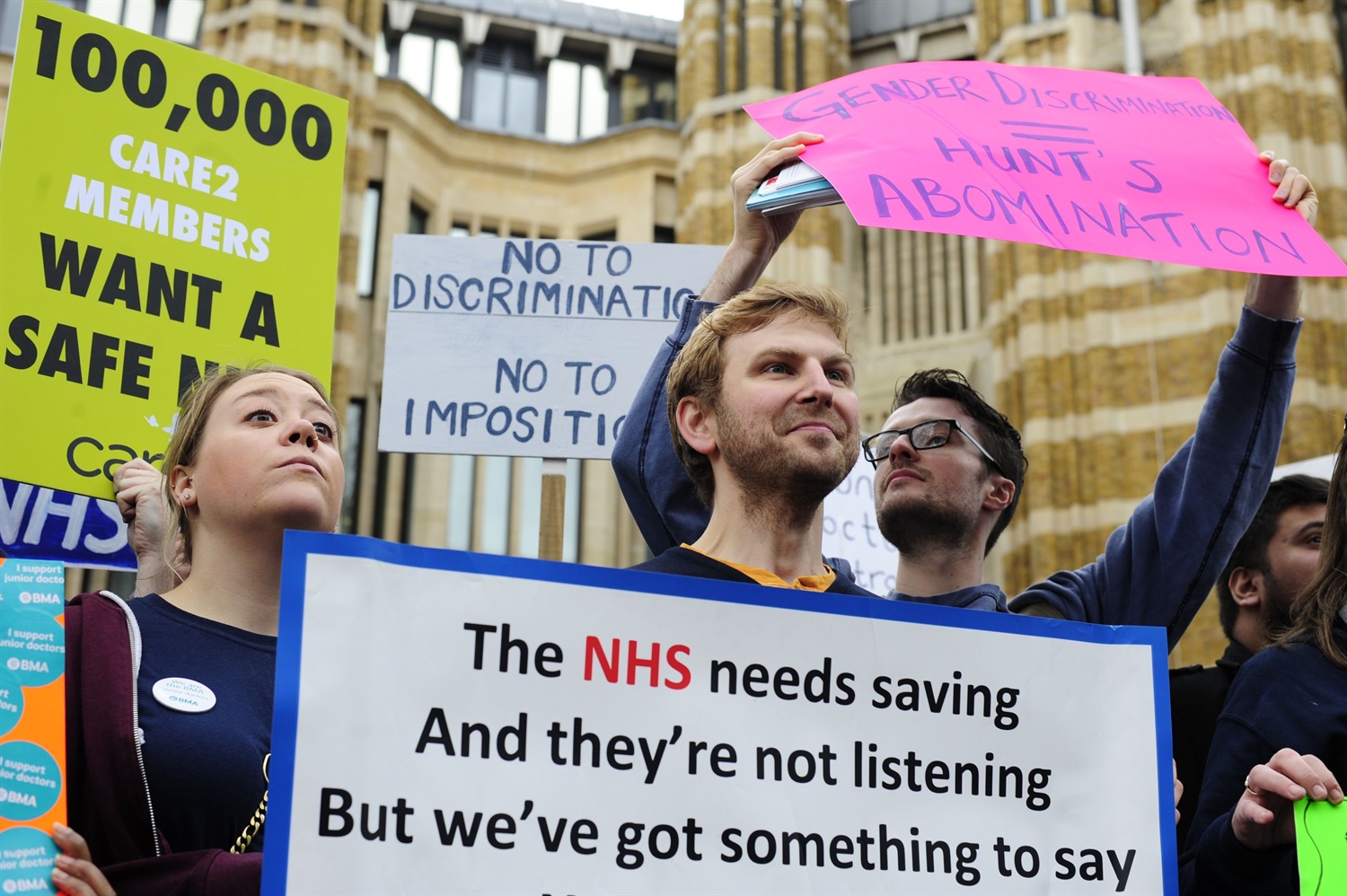07.04.16
HEE data shows declining specialty recruitment rates for junior doctors
Fewer junior doctors are being recruited into specialty training this year, new data from Health Education England (HEE) shows, as the latest strike over an unpopular contract enters its second day.
The statistics show that 79% of junior doctors accepted specialty posts so far this year, compared to 82% the year before.
For example, recruitment rates in obstetrics and gynaecology, anaesthetics and public health have declined from 100% last year to 91%, 94% and 95%, whilst acute medicine take up declined from 87% to 78%.
Psychiatry, which the government wants to make a priority as part of its bid to achieve parity between mental and physical health services, saw an increase from 65% to 67% but remained the specialty with the lowest take up overall.
Dr Mark Holland, president of the Society for Acute Medicine, said: “This causes us a big concern. The immediate effect will be gaps in the rotas and they will have to be filled either with locums or asking staff already in post to take on extra duties. It will also have a knock on effect in future years with the quality of staff to recruit into registrars and ultimately consultants.”
He added that the contract dispute was the result of ongoing pressures over the last 15 years.
The latest recruitment news comes after the British Medical Association (BMA) and JustHealth both launched judicial reviews against the imposition of the new contract, saying it is potentially discriminatory and will discourage doctors from entering the profession, especially women and those with disabilities.
In relation to the ongoing strikes, Dr Johann Malawana, the chair of the BMA junior doctors’ committee, said: “By pursuing its current course, the government risks alienating a generation of doctors.
“If it continues to ignore junior doctors’ concerns, at a time when their morale is already at rock-bottom, doctors may vote with their feet, which will clearly affect the long-term future of the NHS and the care it provides.
“Responsibility for industrial action now lies entirely with the government. It must start listening and resume negotiations on a properly funded junior doctors’ contract to protect the future of patient care and the NHS.”
Public support remains with doctors as strikes continue
Health secretary Jeremy Hunt announced in February that he was imposing the controversial contract, which reduces the number of antisocial hours for which doctors earn higher pay and changes pay progression so that doctors receive it for advancing in the hierarchy rather than for the number of years worked, after previous strikes failed to reach an agreement. Doctors responded by intensifying action to 48-hour strikes.
NHS England said that 46% of junior doctors reported to work yesterday and 5,165 operations were cancelled. Actors from Channel 4 sitcom Green Wing joined a picket line outside Northwick Hospital in Middlesex during yesterday's strikes (pictured above).
Dr Anne Rainsberry, national incident director for NHS England, said: “We’ve already seen the pressure a 48-hour stoppage places on the NHS. The impact of the action so far is broadly in line with what we were expecting but tomorrow is likely to more difficult and we have made sure we have planned for this.”

A YouGov survey conducted last week found public opinion is broadly on the side of the doctors, with 59% of the public supporting partial action and 23% opposing it.
The percentage supporting a total strike, which the doctors are due to carry out on 26-27 April, was 45%, compared to 38% opposing it.
When asked who was to blame for the dispute, 48% said the government, an increase from 45% in February, and only 9% blamed the BMA.
(Top image c. Nick Ansell from PA Wire and Press Association Images. Bottom image: junior doctors striking outside the Department of Health yesterday, c. Lauren Hurley from PA Wire and Press Association Images.)